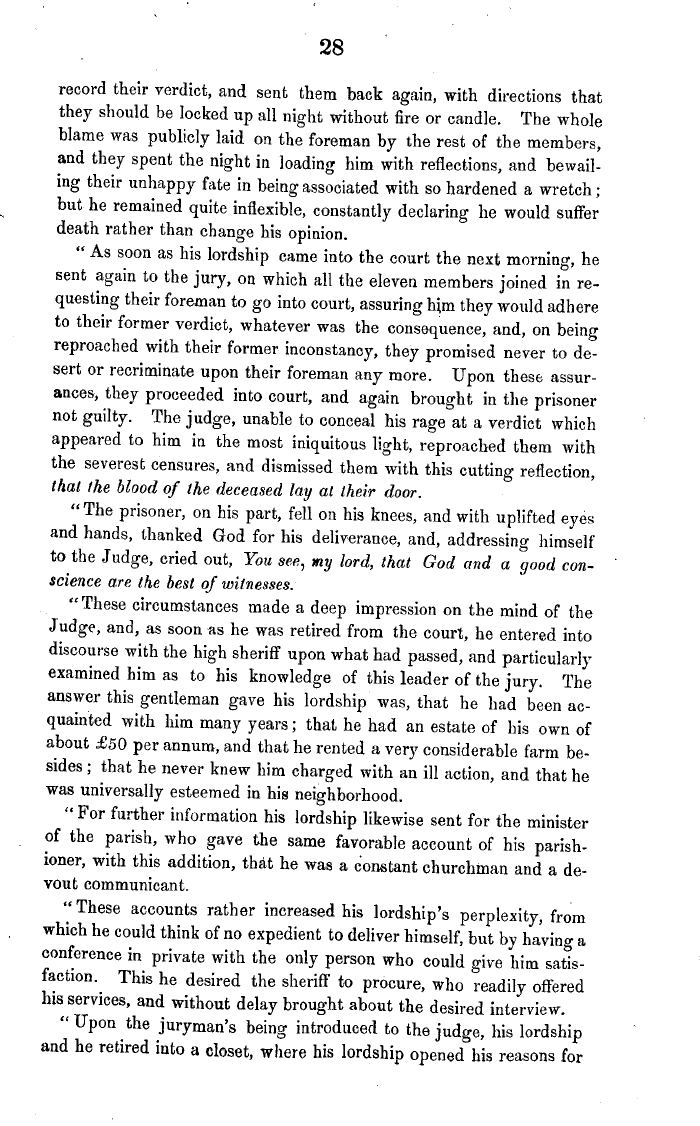|
28
record their verdict, and sent them back again, with directions that
they should be locked up all night without fire or candle. The whole
blame was publicly laid on the foreman by the rest of the members,
and they spent the night in loading him with reflections, and bewail-
ing their unhappy fate in being associated with so hardened a wretch;
but he remained quite inflexible, constantly declaring he would suffer
death rather than change his opinion.
" As soon as his lordship came into the court the next morning, he
sent again to the jury, on which all the eleven members joined in re-
questing their foreman to go into court, assuring him they would adhere
to their former verdict, whatever was the consequence, and, on being
reproached with their former inconstancy, they promised never to de-
sert or recriminate upon their foreman any more. Upon these assur-
ances, they proceeded into court, and again brought in the prisoner
not guilty. The judge, unable to conceal his rage at a verdict which
appeared to him in the most iniquitous light, reproached them with
the severest censures, and dismissed them with this cutting reflection,
that the blood of the deceased lay at their door.
"The prisoner, on his part, fell on his knees, and with uplifted eyes
and hands, thanked God for his deliverance, and, addressing himself
to the Judge, cried out, You see, my lord, that God and a good con-
science are the best of witnesses.
"These circumstances made a deep impression on the mind of the
Judge, and, as soon as he was retired from the court, he entered into
discourse with the high sheriff upon what had passed, and particularly
examined him as to his knowledge of this leader of the jury. The
answer this gentleman gave his lordship was, that he had been ac-
quainted with him many years; that he had an estate of his own of
about X50 per annum, and that he rented a very considerable farm be-
sides; that he never knew him charged with an ill action, and that he
was universally esteemed in his neighborhood.
"For further information his lordship likewise sent for the minister
of the parish, who gave the same favorable account of his parish-
ioner, with this addition, that he was a constant churchman and a de-
vout communicant.
`° These accounts rather increased his lordship's perplexity, from
which he could think of no expedient to deliver himself, but by having a
conference in private with the only person who could give him satis-
faction. This he desired the sheriff to procure, who readily offered
his services, and without delay brought about the desired interview.
`° Upon the juryman's being introduced to the judge, his lordship
and he retired into a closet, where his lordship opened his reasons for
|

